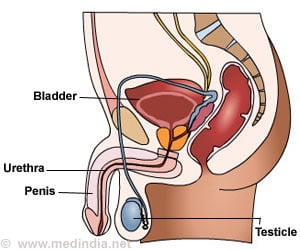A study reveals that women with hematuria were less than half as likely as men with the same issue to be referred to a urologist for further investigations.

The study, presented by Jeffrey Bassett, M.D., MPH, fellow in Urologic Oncology, and Principal Investigator Daniel Barocas, M.D., MPH, assistant professor of Urologic Surgery, was shared during the American Urological Association (AUA) annual conference held May 16 - 21 in Orlando, Florida, and was highlighted during the AUA press program.
Blood in the urine is often the first sign of bladder cancer. The AUA recommends that everyone over 35 with hematuria not due to a benign cause receive an evaluation that includes looking inside the bladder (cystoscopy) as well as imaging of the urinary tract, usually with a CT scan.
For this study, investigators reviewed the medical records of a random sample of 9,211 Medicare beneficiaries diagnosed with hematuria between January 2009 and June 2010. Only 17 percent of females with a diagnosis of hematuria from their primary care provider were referred to a urologist for a diagnostic workup within 180 days, compared to 39 percent of men. Receipt of a complete evaluation did not differ by race.
"The data in the literature suggest that the misdiagnosis and treatment of hematuria in women as urinary tract infection is one of the main reasons they present with more advanced stage bladder cancer at diagnosis," said Bassett.
Some of the difference may be clinical decision-making by physicians who know that women are less likely to have bladder cancer than men. But Barocas said the disparities suggest primary care physicians may need to be more vigilant.
Source-Eurekalert
 MEDINDIA
MEDINDIA



 Email
Email










